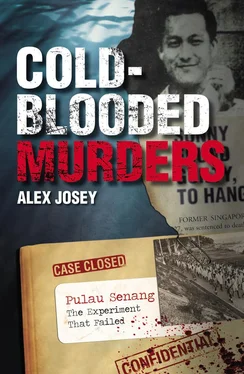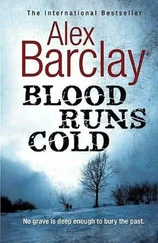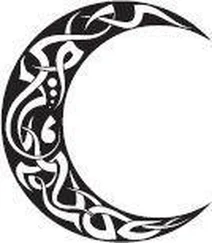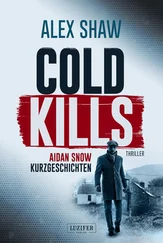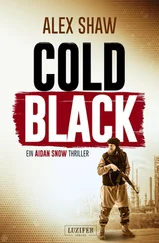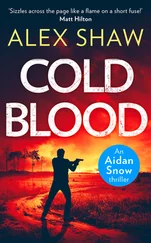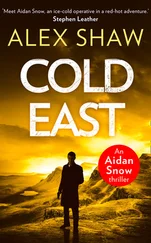Alex Josey - Cold blooded murders
Здесь есть возможность читать онлайн «Alex Josey - Cold blooded murders» весь текст электронной книги совершенно бесплатно (целиком полную версию без сокращений). В некоторых случаях можно слушать аудио, скачать через торрент в формате fb2 и присутствует краткое содержание. Жанр: Криминальный детектив, на английском языке. Описание произведения, (предисловие) а так же отзывы посетителей доступны на портале библиотеки ЛибКат.
- Название:Cold blooded murders
- Автор:
- Жанр:
- Год:неизвестен
- ISBN:нет данных
- Рейтинг книги:5 / 5. Голосов: 1
-
Избранное:Добавить в избранное
- Отзывы:
-
Ваша оценка:
- 100
- 1
- 2
- 3
- 4
- 5
Cold blooded murders: краткое содержание, описание и аннотация
Предлагаем к чтению аннотацию, описание, краткое содержание или предисловие (зависит от того, что написал сам автор книги «Cold blooded murders»). Если вы не нашли необходимую информацию о книге — напишите в комментариях, мы постараемся отыскать её.
Cold blooded murders — читать онлайн бесплатно полную книгу (весь текст) целиком
Ниже представлен текст книги, разбитый по страницам. Система сохранения места последней прочитанной страницы, позволяет с удобством читать онлайн бесплатно книгу «Cold blooded murders», без необходимости каждый раз заново искать на чём Вы остановились. Поставьте закладку, и сможете в любой момент перейти на страницу, на которой закончили чтение.
Интервал:
Закладка:
Evidence was later given by Professor L.F. Tinker of the General Hospital. He said Tailford’s skull was fractured and he had other wounds and bruises. His forearm was broken. He had a paralysis on the left side of the face, which was indicative of damage to the control system of the brain. When he was discharged on 6 August 1963, his mental condition was normal but, as was to be expected, his power of recollection was impaired. The Professor said it was extremely unlikely that he would regain his memory of past events leading up to his injury.
Further medical evidence was given that Tan Kok Hian died in hospital the evening of 12 July. Chok Kok Tong died early the following morning.
The case for the prosecution ended at 3:00 PM the afternoon of 30 January. Twenty minutes later, the jury were sent out while all the defence counsel submitted they had no case to answer. This argument lasted until lunch-time the following day when the Judge announced he had overruled it. There was, he said, no substance in the legal submissions. He decided that there was evidence that the accused had committed the offence with which they were charged, and he proposed to ‘call on them to enter their defence’.
On 3 February, he ruled that the two accused who feigned insanity were found to be shamming; there was no question of them being unfit to plead. “I am quite satisfied that they are not insane, and that this shammed insanity was but a ruse to delay and defeat the ends of justice and to frustrate the due processes of the law.”
The Judge announced that all the accused must make their defence. Before making the announcement, he ordered that the exhibits (the parangs and other weapons) be taken away and locked up in his chambers. “I don’t like my Court cluttered up. I dislike having them lying about here with all the risk of their being turned over and disappearing.”
He told the accused they could make their defence in any one of three ways: they could go in the box and give evidence on oath (in which event they would be liable to cross-examination). The second alternative was that they could make an unsworn statement from the dock (in which event they could not be asked questions by anyone), or thirdly, they could remain silent. The Judge asked each of the accused which they preferred. Altogether, 42 accused elected to remain silent, 15 elected to give evidence on oath, and one (Yong Ah Chew alias Au Chua alias Put Yeow) decided to make an unsworn statement from the dock. The Judge told counsel that they could address the jury first or open their defence and then make a final statement. Mr Ball decided to address the jury. His address lasted exactly one and a half hours.
Mr Ball set out to attack the legality of Pulau Senang. He said it was misleading of the prosecution to refer to the accused as Criminal Law detainees. As they were not convicted persons they were not obliged to work. It was said they volunteered, but in fact they had no option. They worked, and worked long hours and got very little pay. Mr Ball warned the jury about accepting much of the evidence. Many witnesses were ex-detainees and members of rival secret societies. There had been talk of a death list. No such list had been produced. As for there being a conspiracy, where was the proof?
It was 12:55 PM when Mr Ball concluded his address to the jury. He was asked by the Judge to carry on with the rest of his defence. Then, the Judge said, the Court could hear the defence of Mr Suppiah’s clients. Mr Ball protested. He would prefer Mr Suppiah to make his address. Then all the accused could be separately defended. The Judge ruled against this. “I think you just take your clients and their witnesses. You can call your witnesses at the end of such of your clients as are giving evidence on oath or making an unsworn statement.” Mr Ball: Well, I am taken by surprise by that. And if it is a ruling I will bow to it. Judge: I’m afraid it is.
Sim Cheng Tee was the first to give his defence on oath. He swore he was a non-rioter. He produced two non-rioting witnesses to support him. On oath they also swore that Sim was a non-rioter.
Ang Teck Kee, the next prisoner, was asked why another detainee should have given evidence against him. Ang said that at Changi in 1962 they had quarrelled during a volley-ball match. He had questioned a decision given by Ang. Ang had been the referee. He called no witnesses.
Yong Ah Chew (defended by Mr Abisheganaden) made his unsworn statement from the dock. He said that Chi, who had given evidence against him, bore him a grudge over a mango the accused had picked up. As for the other man who had identified him as a rioter, well, he just wanted an early release. The two prosecution witnesses had lied. Mr Abisheganaden: May I be permitted to ask him where he was at the time of the riot? Judge: No but I will allow you a special privilege. You may confer with him, but I will not allow you to question him.
The accused then told the Court that at the time of the riot he was at the vegetable patch.
Neo Kim Leong swore he did not take part in the riot. He said that the settlement attendant who gave evidence against him had quarrelled with him in 1962. He had refused to give medicine to him. He was then in charge of the hospital. As for the sergeant who gave evidence against him, he had a grudge because he had caught the accused fishing in the sea.
Lim Heng Soon, aged 24, unmarried, said he did not take part in the riot, but had seized the opportunity to try to escape in the boat.
Mr Suppiah began the defence of Somasundram, Somasundarajoo and Lim Kim Chuan. Somasundram was 23. He was educated up to fourth standard in English and first standard in Tamil. He had lived with an uncle. His parents were killed during the Japanese occupation. He said the witness Chia had several grudges against him. Eighteen witnesses had picked him out as a rioter. Accused said he could not understand why. He could not recognise any rioters himself.
Somasundarajoo was aged 24. He spoke Chinese. He had spent two years in school when his father died. Eight witnesses had said he was rioting. He denied it. He saw no rioting, just buildings burning and bottles being thrown about.
Lim Kim Chuan at first complained that he had a headache, then he decided he would like to remain silent. This was not good enough for the Judge. Judge: I’m not going to have it said later on that he remained silent because he had a headache. If he does want to remain silent that is a matter entirely for him. It must be completely a voluntary decision, and not forced upon him by the fact that he has a headache. Mr Suppiah: Accused says that the incident took place quite some time ago. He was afraid that he would be confused were he to give evidence. He preferred to remain silent. Judge: You are properly satisfied that this is his own choice, not because he has a headache, or any other reason? Mr Suppiah: Yes, my Lord.
Mr Chng’s clients remained silent. He called no witnesses.
Chua Hai Imm was to have given his evidence on oath. He changed his mind and said he would make an unsworn statement from the dock.
He said the prosecutor was unjust. “I did not take part in the riot. Robert Choo has a grudge against me. The prosecutor is very unfair.”
Tan Tien Lay decided to remain silent. No witnesses came forward on his behalf. Both were defended by Mr Tann.
Mr Advani then addressed the jury on behalf of Kwek Kok Wah, who made an unsworn statement. He called no witnesses. In his statement he said he did not riot.
Teo Han Teck, formerly a seaman, claimed he had helped Tailford by rubbing his chest. He helped to carry him to the shade of a big tree, then he bandaged his head with a towel. Teo said he stood up to help when an officer called upon them to help and told them: ‘You will be released earlier’. That, said Teo, ‘was one of the golden opportunities which I seized’. Ng Chuan Puay elected to remain silent. He called no witnesses.
Читать дальшеИнтервал:
Закладка:
Похожие книги на «Cold blooded murders»
Представляем Вашему вниманию похожие книги на «Cold blooded murders» списком для выбора. Мы отобрали схожую по названию и смыслу литературу в надежде предоставить читателям больше вариантов отыскать новые, интересные, ещё непрочитанные произведения.
Обсуждение, отзывы о книге «Cold blooded murders» и просто собственные мнения читателей. Оставьте ваши комментарии, напишите, что Вы думаете о произведении, его смысле или главных героях. Укажите что конкретно понравилось, а что нет, и почему Вы так считаете.
